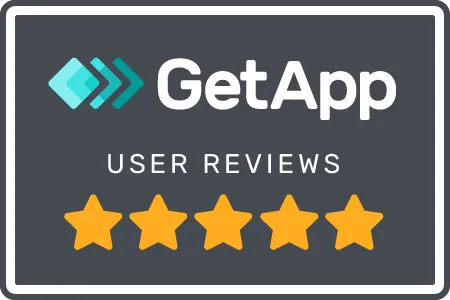Accounting has always been essential to running a successful business, but hasn’t always been efficient. Manual data entry, invoice matching, and endless reconciliations drain time and leave room for error. Fortunately, artificial intelligence (AI) is changing that. By automating repetitive tasks, AI saves time, enhances accuracy, improves compliance, and frees up accounting teams to focus on strategy and analysis.
Research and Markets reports that the global market for artificial intelligence in accounting is projected to grow from $6.98 billion in 2025 to $35.8 billion by 2029, with a compound annual growth rate (CAGR) of 50.5%.
Whether you're a small business owner, a CFO, or part of an accounting team, AI tools can simplify workflows and reduce costs.
1. Automated Invoice Processing and Accounts Payable
Managing invoices can be tedious and time-consuming. AI tools can now read, extract, and organize invoice data in seconds, slashing manual effort and reducing human error.
- Parseur is a powerful AI-powered document parsing tool designed to take the pain out of manual data entry. Using advanced AI Optical Character Recognition (OCR) and no-code parsing technology, Parseur can automatically extract structured data from various documents, including invoices, receipts, purchase orders, and email content. What sets Parseur apart is its ability to turn unstructured documents into clean, accurate data that seamlessly integrates with your favorite accounting software, like QuickBooks, Xero, or Zoho Books. No more copy-pasting. No more manual uploads. Just fast, accurate automation that works in real time.
- Vic.ai brings intelligence to invoice processing by using AI to automate approval workflows, match invoices with purchase orders, and detect anomalies.
- Tipalti simplifies global payments by automating vendor onboarding, tax compliance, and multi-currency payments.
- Dext (formerly Receipt Bank) is known for scanning and extracting key financial details from receipts, bills, and bank statements.
- Stampli offers collaborative invoice processing and real-time communication between departments, speeding up approvals and reducing late payments.
2. Real-Time Reporting and Financial Insights
Waiting until month-end to get a financial snapshot is a thing of the past. With AI, real-time financial reporting and forecasting are now possible and accessible.
- Xero leverages machine learning to automatically reconcile bank transactions and forecast cash flow. It learns from your behavior and offers suggestions over time.
- QuickBooks Online uses AI to categorize transactions, predict recurring expenses, and generate auto-updated reports. You get insights without having to crunch numbers manually.
- Zoho Books simplifies recurring invoicing, financial forecasting, and intelligent categorization. AI-driven insights help businesses stay proactive.
- Intuit Assist, part of the ecosystem, uses generative AI to offer personalized recommendations based on real-time financial data.
- NetSuite offers enterprise-level capabilities, using AI for deeper forecasting, customizable dashboards, and automated report generation tailored to large organizations.
3. Bookkeeping and Document Management Automation
Good bookkeeping is the backbone of financial health. AI makes it easier to keep records up to date and organized.
- Docyt provides real-time bookkeeping by automatically categorizing expenses, syncing documents, and updating ledgers.
- Botkeeper combines AI and human expertise, offering continuous transaction classification, reconciliation, and custom reporting, all with minimal input from your team.
- Zeni focuses on startups, offering AI-powered real-time bookkeeping, burn rate tracking, and investor-friendly financial dashboards.
4. Tax Compliance and Audit Automation
Tax season doesn’t have to mean stress and spreadsheets. AI tools now help organizations stay compliant and audit-ready all year long.
- Blue Dot automates tax compliance, identifies risk areas, and verifies transactions against tax rules helping organizations avoid surprises.
- MindBridge AI Auditor uses AI to scan and assess financial data, flagging anomalies and potential compliance issues.
- Alteryx brings powerful automation and analytics to financial teams, enabling quick processing of large datasets for tax, audit, and compliance purposes.
5. Robotic Process Automation (RPA) for Accounting
RPA tools are ideal for large-scale accounting functions that require rule-based automation.
- UiPath and Automation Anywhere can automate reconciliation, compliance reporting, data transfers, and report generation.
6. Automation Integration Platforms
AI tools become even more powerful when connected through automation platforms.
- Use Zapier, Make, or Power Automate to connect different tools and create seamless workflows.
Example workflow:
- Parseur extracts data from invoices.
- Zapier transfers the data into QuickBooks.
- QuickBooks automatically updates financial records and prepares reports.
This integration reduces repetitive tasks and allows your team to focus on higher-value activities like forecasting, budgeting, and planning.
Conclusion
AI isn’t just a buzzword in accounting, it’s a practical way to save time, reduce costs, and enhance accuracy. From optimizing invoices and reconciling transactions to generating reports and preparing for audits, AI helps modern finance teams do more with less.
The best part? You don’t have to overhaul your entire accounting system overnight. Start simple. Tools like Parseur make it easy to begin optimizing repetitive data entry tasks today. Once you see the time saved, you can gradually scale to a fully automated accounting workflow.
Embracing AI in accounting doesn’t mean replacing humans, it means giving accountants the tools they need to focus on what matters: strategic insight, financial planning, and business growth.
Last updated on




